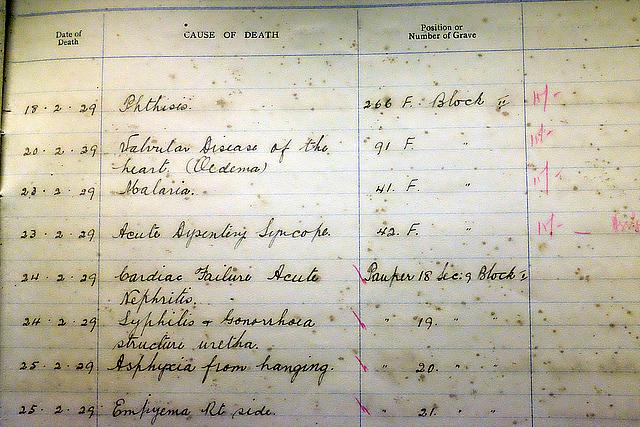A Public Death: North Carolina gets serious about health data

Local governments throughout the country have been unlocking the power of digital health data for decades.
But in North Carolina, record keeping has been a slow, paper-only process that creates huge lags in time and makes swift, efficient decision-making much more difficult.
In early 2014, Catherine Ryan took over the leadership of North Carolina’s vital registration system as the state registrar, and she is moving relatively quickly to update and computerize the state’s death records system. Four years earlier, the state finally updated its birth records system by making it computerized. But death records remained the same as they had been since the state first started tracking all deaths in 1930. Ryan was quoted by Gary D. Robertson in an Associated Press story making the case for the update to North Carolina lawmakers:
"It is very cumbersome to register 83,000 deaths each year with a manual process," Ryan told lawmakers. "This entire death registration process is very outdated and needs reengineering."
The Star-News in Wilmington, N.C., wrote an editorial calling on the state to move into the modern era:
According to The Associated Press, it can take three months for a death to be recorded by the Vital Records office. That can delay some estate matters, but it also may take longer for state health officials to receive cause-of-death information that is important in analyzing epidemics or identifying health patterns.
Exactly. For decades, scientists have conducted important research using North Carolina death records. (I will write more about that in a later post.)
For people who don’t care about tracking health trends and improving health outcomes, there’s the simple customer service argument.
Robertson quoted Department Secretary Dr. Aldona Wos, Secretary of the Department of Health and Human Services, who said, "Citizens have a right to have a birth certificate and a death certificate within a reasonable amount of time."
And here’s one more consideration for lawmakers when thinking about updating North Carolina’s death-records system: voter fraud.
Whether widespread voter fraud is real, imagined, or greatly exaggerated, it doesn’t matter. Politicians love to get people fired up about people selling their votes, voting twice, voting while dead, etc.
As the Star-News wrote:
The presence of dead voters on the rolls was cited during debates over new restrictions on voting. Ensuring that voter rolls are accurate is the first and most important step in reducing the potential for fraud.
Why not modernize the state’s death records while winning (fingers crossed) real votes?
While Ryan, the state registrar, is taking the first steps toward modernizing the system on her own, the decision now lies with the state Legislature, which must balance the short-term costs of upgrading and long-term costs of upkeep against competing budget priorities. A lack of funding could derail the effort. The state’s digitized birth records, for example, only go back to 1971 because the state has not budgeted money to modernize earlier records. Nonetheless, the benefits of a modern birth- and death-records system seem clear.
Image by Jnzl's Public Domain Photos via Flickr.

